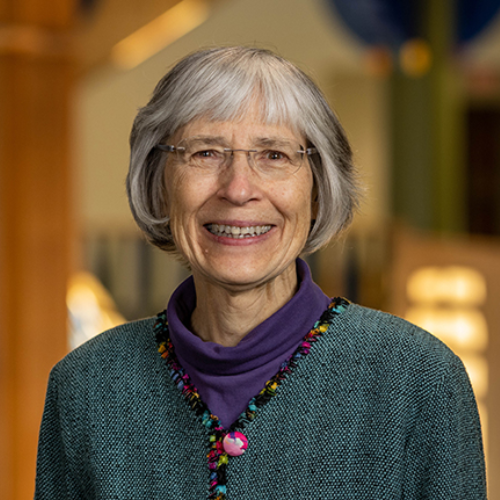Consulting for Statistics, Computing, and Analytics Research (CSCAR): Providing Expert Support for University of Michigan Researchers
By Eric Shaw
Office of the Vice President for Research and Innovation
In today’s digital age, many research domains are highly reliant on data analysis, technical software, and advanced computing. To support researchers at the University of Michigan (U-M) in navigating these complex areas, Consulting for Statistics, Computing, and Analytics Research (CSCAR) offers a wide range of free and recharge-based services. CSCAR’s team of highly trained consultants and experts provides individualized guidance and training to U-M researchers in all domains. Whether it’s data management, study design, statistical analysis, or the use of advanced computing resources, CSCAR is committed to helping researchers achieve their goals. In this article, we will explore the services and expertise provided by CSCAR, highlighting their commitment to supporting U-M researchers.

Brenda Gillespie, CSCAR Associate Director and research associate professor of biostatistics
“At CSCAR, we welcome both new and experienced researchers. Almost anyone can benefit from our services. We encourage anyone at U-M to schedule an appointment to discuss their work with us, so that we can see how our expertise may contribute to achieving their research goals,”
Brenda Gillespie, CSCAR Interim Director and research associate professor of biostatistics.
Services Offered by CSCAR
CSCAR understands the diverse needs of U-M researchers and offers a comprehensive range of services to address those needs effectively. These services include:

Individualized Consulting
CSCAR provides personalized consulting to U-M researchers, addressing needs ranging from broad research strategy all the way down to the details of study design, statistical analysis, and data management.
“At CSCAR, we understand that researchers have diverse needs when it comes to data analysis and computing. That’s why we offer personalized consulting to ensure that researchers receive the support they need in their specific areas of research.”
– Corey Powell, CSCAR consultant
Technical Software and Advanced Computing Support
CSCAR offers support in using technical software and advanced computing resources. The team at CSCAR has expertise in various programming languages and software tools such as:
- R
- Python
- SAS
- SPSS
- Stata
- Julia
- among other tools.
Whether researchers need assistance in debugging, profiling, or optimizing code, CSCAR consultants can provide valuable guidance. CSCAR can also assist with the use of Greatlakes and other U-M advanced computing infrastructure.
“At CSCAR, we welcome both new and experienced researchers. Almost anyone can benefit from our services. We encourage anyone at U-M to schedule an appointment to discuss their work with us, so that we can see how our expertise may contribute to achieving their research goals,” said Brenda Gillespie, CSCAR Associate Director and research associate professor of biostatistics.
“We always listen to researchers’ specific needs and provide individualized support to assess which paths may be followed. We take pride in our ability to offer personalized guidance and training in a variety of areas relating to using technical software and advanced computing resources.”
Manuscript Preparation and Grant Proposal Assistance
CSCAR consultants have extensive experience in manuscript preparation and the grant proposal process. Researchers are encouraged to consult CSCAR for questions relating to communication of technical findings, and addressing concerns raised by reviewers.
“We are dedicated to helping researchers resolve questions and concerns related to analytic approaches and to effectively present quantitative and empirical findings. Our ultimate goal is for researchers to find the most meaningful and robust findings in their data, to communicate effectively, and to achieve recognition for their insights,” said Carol Janney, CSCAR consultant with expertise in writing of research methods and results for publications, presentations, grants, and proposal development.
Data Science and Analytics Support
With the increasing importance of data science and analytics, CSCAR provides specialized support in these areas. Researchers can seek assistance in data mining, text analysis, predictive modeling, and other advanced analytical techniques. CSCAR consultants can guide researchers in leveraging the power of data science to gain valuable insights from their datasets.
The team at CSCAR helps researchers uncover hidden patterns and trends in data through advanced statistical techniques. Whether researchers seek assistance with experimental design, regression analysis, predictive modeling, or complex machine learning algorithms, CSCAR is committed to providing analytic support to help them achieve their goals.
Workshops and Training
CSCAR provides training to U-M researchers through a variety of workshops that aim to enhance skills in statistical analysis, data science, and computing. These workshops cover topics such as regression analysis, machine learning, data visualization, and more.
“By participating in our workshops and training sessions, U-M researchers can stay up-to-date with the latest methods for analyzing and manipulating data, and acquire new techniques to enhance their research,” said Chris Andrews, CSCAR Consultant with expertise in statistical modeling, particularly survival analysis, all forms of regression, programming in R and SAS; applications to clinical trials, administrative claims data, and some “omics” areas.
“Our workshops cover a wide range of topics and are designed to provide researchers with the skills needed to succeed in their research endeavors”.
Areas of Expertise at CSCAR
The team at CSCAR comprises experts with diverse backgrounds and areas of expertise. These experts have years of experience working with researchers in different domains where data and computation play a crucial role. These are just a few examples of the areas of expertise offered by CSCAR. Their team of consultants has a wide range of skills and knowledge to support U-M researchers across various disciplines.
Some of the areas of expertise at CSCAR include:
Statistical Modeling and Analysis
CSCAR staff are skilled in various statistical modeling techniques, including regression analysis, survival analysis, multivariate analysis, and categorical data analysis. They can assist researchers in selecting and implementing the most appropriate statistical methods for their research questions.
High-Performance Computing
CSCAR consultants have expertise in utilizing high-performance computing resources for computationally intensive tasks. They can assist researchers in optimizing code, managing large and complex datasets, and utilizing parallel computing techniques to enhance computational efficiency.
Data Visualization
CSCAR consultants can help researchers effectively visualize their data through the use of statistical graphics and data visualization techniques. They can guide researchers in creating informative and visually appealing visualizations to communicate their findings effectively.
Machine Learning and Artificial Intelligence
With the growing importance of machine learning and artificial intelligence in research, CSCAR experts can guide you in utilizing these techniques. They can assist researchers in applying machine learning algorithms, developing predictive models, and analyzing large and complex datasets.
Research Design and Study Planning
CSCAR consultants can assist researchers in formulating research aims, designing studies, and determining appropriate sample sizes and power analysis. They can provide valuable guidance in ensuring that research studies are well-designed and statistically sound
Biostatistics and Epidemiology
CSCAR consultants with expertise in biostatistics and epidemiology can support researchers working in these fields. They can assist with study design, data analysis, and interpretation of findings in the context of public health research.
Accessing CSCAR Support
In-Person or Zoom
CSCAR meetings are held in person at the CSCAR office suite in the Rackham Building. Appointments can also be held remotely using Zoom or another platform.
To schedule a consultation with a CSCAR consultant, researchers can submit an appointment request online (cscar.research.umich.edu) or call the CSCAR front desk (734-764-7828).
Walk-in support
CSCAR offers walk-in support during business hours, allowing researchers to receive immediate assistance.
Technical Questions
Technical questions can be sent to [email protected] and administrative inquiries can be sent to [email protected].
CSCAR requests that all correspondence be made using a U-M email address.
A Comprehensive Suite of Services
Consulting for Statistics, Computing, and Analytics Research (CSCAR) plays a vital role in supporting researchers at the University of Michigan. With their expertise in statistical analysis, technical software, and advanced computing, CSCAR consultants provide valuable guidance to U-M researchers in various domains.
From research design and data analysis to manuscript preparation and grant proposal assistance, CSCAR offers a comprehensive suite of services to help researchers achieve their goals. By leveraging the expertise and resources provided by CSCAR, U-M researchers can enhance the quality and impact of their research projects.
